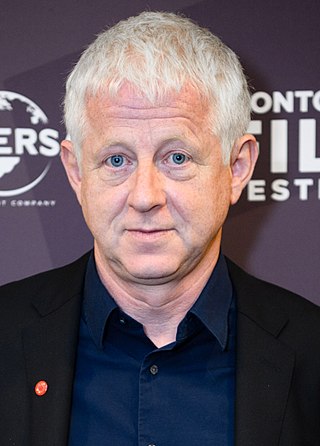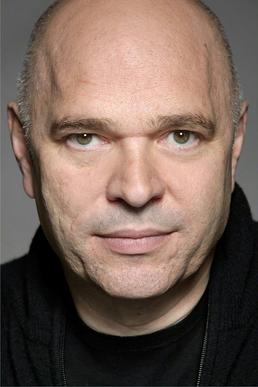
Sir Philip Anthony Hopkins is a Welsh actor. One of Britain's most recognisable and prolific actors, he is known for his performances on the screen and stage. Hopkins has received numerous accolades, including two Academy Awards, four BAFTA Awards, two Primetime Emmy Awards, and a Laurence Olivier Award. He has also received the Cecil B. DeMille Award in 2005 and the BAFTA Fellowship for lifetime achievement in 2008. He was knighted by Queen Elizabeth II for his services to drama in 1993.

Sir Tom Stoppard is a Czech-born British playwright and screenwriter. He has written for film, radio, stage, and television, finding prominence with plays. His work covers the themes of human rights, censorship, and political freedom, often delving into the deeper philosophical thematics of society. Stoppard has been a playwright of the National Theatre and is one of the most internationally performed dramatists of his generation. He was knighted for his contribution to theatre by Queen Elizabeth II in 1997.

Richard Whalley Anthony Curtis is a British screenwriter, producer and film director. One of Britain's most successful comedy screenwriters, he is known primarily for romantic comedy films, among them Four Weddings and a Funeral (1994), Notting Hill (1999), Bridget Jones's Diary (2001), Love Actually (2003), Bridget Jones: The Edge of Reason (2004), About Time (2013), and Yesterday (2019). He is also known for the drama War Horse (2011) and for having co-written the sitcoms Blackadder, Mr. Bean, and The Vicar of Dibley. His early career saw him write material for the BBC's Not the Nine O'Clock News and ITV's Spitting Image.

Billy Elliot is a 2000 British coming-of-age comedy-drama film directed by Stephen Daldry and written by Lee Hall. Set in County Durham in North East England during the 1984–1985 miners' strike, the film is about a working-class boy who discovers a passion for ballet. His father objects, based on negative stereotypes of male ballet dancers. The film stars Jamie Bell as 11-year-old Billy, Gary Lewis as his father, Jamie Draven as Billy's older brother, and Julie Walters as his ballet teacher.

Melvyn Bragg, Baron Bragg, is an English broadcaster, author and parliamentarian. He is the editor and presenter of The South Bank Show, and the presenter of the BBC Radio 4 documentary series In Our Time.

Anthony Minghella, was a British film director, playwright and screenwriter. He was chairman of the board of Governors at the British Film Institute between 2003 and 2007. He directed Truly, Madly, Deeply (1991), The English Patient (1996), The Talented Mr. Ripley (1999), and Cold Mountain (2003), and produced Iris (2001), The Quiet American (2002), Michael Clayton (2007), and The Reader (2008).

Thomas Nigel Kneale was a Manx screenwriter who wrote professionally for more than 50 years, was a winner of the Somerset Maugham Award, and was twice nominated for the BAFTA Award for Best British Screenplay.

Sir Christopher James Hampton is a British playwright, screenwriter, translator and film director. He is best known for his play Les Liaisons Dangereuses based on the novel of the same name and the film adaptation. He has thrice received nominations for the Academy Award for Best Adapted Screenplay: for Dangerous Liaisons (1988), Atonement (2007) and The Father (2020); winning for the former and latter.

Kevin Brownlow is a British film historian, television documentary-maker, filmmaker, author, and film editor. He is best known for his work documenting the history of the silent era, having become interested in silent film at the age of eleven. This interest grew into a career spent documenting and restoring film. Brownlow has rescued many silent films and their history. His initiative in interviewing many largely forgotten, elderly film pioneers in the 1960s and 1970s preserved a legacy of early mass-entertainment cinema. He received an Academy Honorary Award at the 2nd Annual Governors Awards given by the Academy of Motion Picture Arts and Sciences on 13 November 2010. This was the first occasion on which an Academy Honorary Award was given to a film preservationist.
Michael Tommy Hodges was a British screenwriter, film and television director, playwright and novelist. His films as writer/director include Get Carter (1971), Pulp (1972), The Terminal Man (1974) and Black Rainbow (1989). He co-wrote and was the original director on Damien: Omen II. As director, his films include Flash Gordon (1980) and Croupier (1998).

Peter Dougan Capaldi is a Scottish actor and director. He portrayed the twelfth incarnation of the Doctor in the science fiction series Doctor Who (2013–2017) and Malcolm Tucker in The Thick of It (2005–2012), for which he received four British Academy Television Award nominations, winning Best Male Comedy Performance in 2010. When he reprised the role of Tucker in the feature film In the Loop, Capaldi was honoured with several film critic award nominations for Best Supporting Actor.
Anthony Frank Hinds, also known as Tony Hinds and John Elder, was an English screenwriter and producer.
Harold Frank Kress was an American film editor with more than fifty feature film credits; he also directed several feature films in the early 1950s. He won the Academy Award for Best Film Editing for How the West Was Won (1962) and again for The Towering Inferno (1974), and was nominated for four additional films; he is among the film editors most recognized by the Academy of Motion Picture Arts & Sciences. He also worked publicly to increase the recognition of editing as a component of Hollywood filmmaking.
Peter Zinner was an Austrian-American film editor. Following nearly fifteen years of uncredited work as an assistant sound editor, Zinner received credits on more than fifty films from 1959 to 2006. His most influential films are likely The Godfather and The Godfather Part II, both of which appear on a 2012 listing of the 75 best edited films of all time compiled by the Motion Picture Editors Guild.
Russell Lloyd was a British film editor who amassed fifty credits on feature films. Lloyd had a notable collaboration with the director John Huston that extended over eleven films. Lloyd was nominated for an Academy Award for Best Film Editing for Huston's The Man Who Would Be King (1975).

Anthony Stewart Head is an English actor and singer. Primarily a performer in musical theatre, he rose to fame in the UK in the 1980s following his role in the Gold Blend couple television advertisements for Nescafé, which led to major roles in several television series. He is best known for his roles as Rupert Giles in Buffy the Vampire Slayer (1997–2003), the Prime Minister in Little Britain (2003–2006), Uther Pendragon in Merlin (2008–2012), and Rupert Mannion in Ted Lasso (2020–2023), as well as voicing Herc Shipwright in BBC Radio 4's Cabin Pressure.

Antony Gibbs was an English film and television editor with more than 40 feature film credits. He was a member of the American Cinema Editors (ACE).

Jack Thorne FRSL is a British playwright, television writer, screenwriter, and producer.
Reginald Beck was a British film editor with forty-nine credits from 1932 to 1985. He is noted primarily for films done with Laurence Olivier in the 1940s and with Joseph Losey in the 1960s and 1970s.
George Michael Hoellering was an Austrian film director, producer and cinema manager. He directed Hortobagy (1936) about the Puszta in Hungary, as well as the 1951 British film Murder in the Cathedral, which he co-wrote with T. S. Eliot. He was the director of the Academy Cinema in London's Oxford Street from 1944 until his death in 1980.












